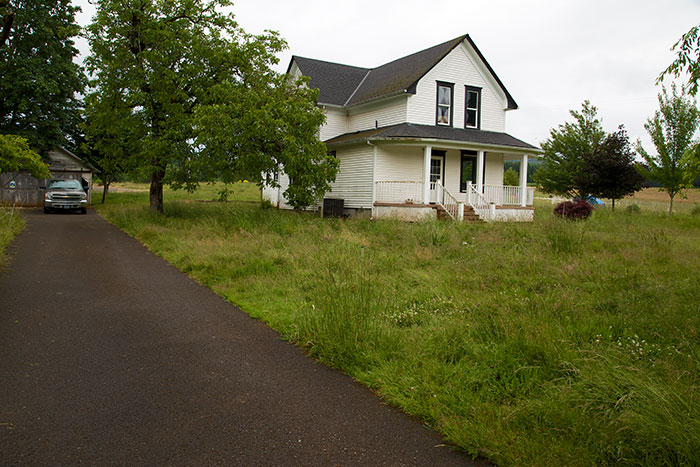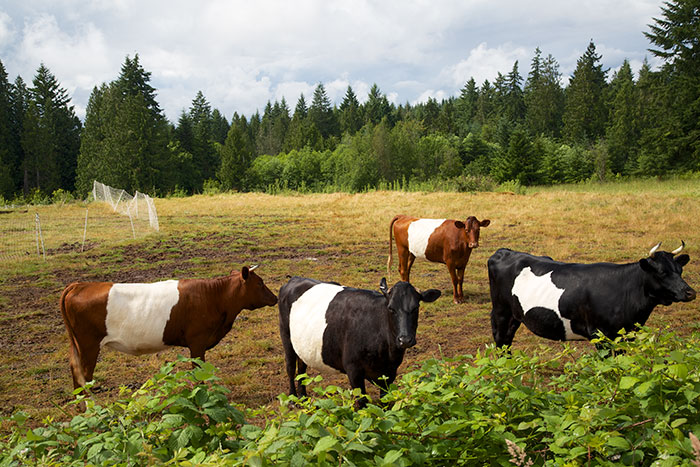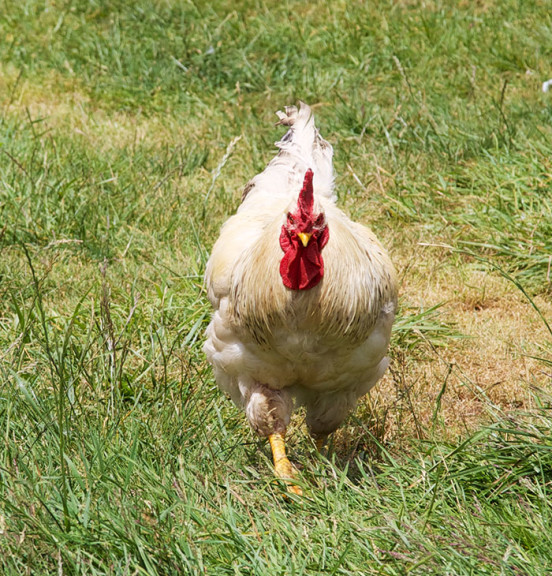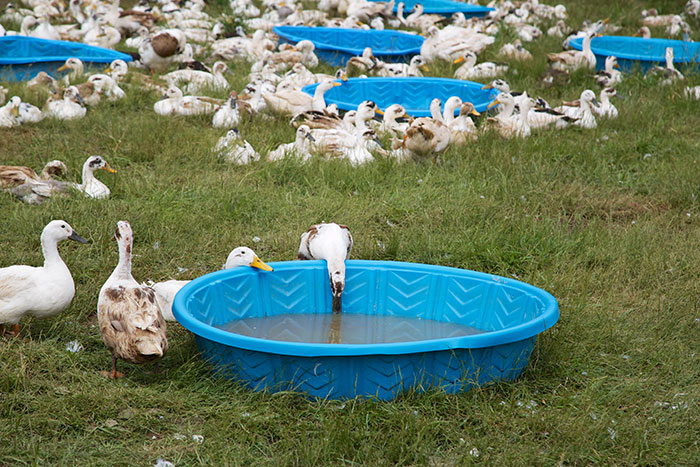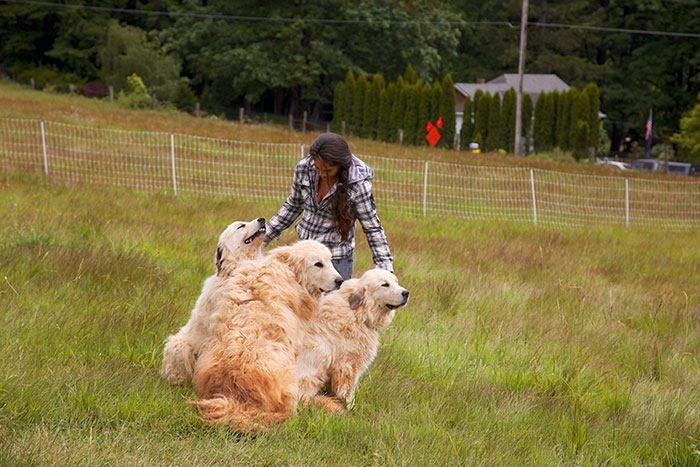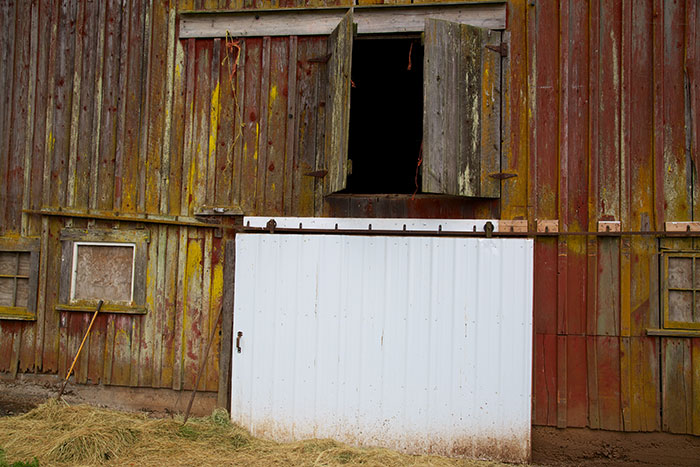Boondockers Farm is a preservation farm. It’s a working farm dedicated to protecting rare species of heritage livestock and heirloom vegetable seeds through their breeding programs. As Evan Gregoire noted during our interview, once a variety of seed or a breed of livestock is lost—there’s no “Jurassic Park” technology that’s likely to restore the lost genetic information. Gone from the face of the earth may be thousands of years of genetic evolution that produced a particular breed of animal or a variety of seed, each with their own unique set of flavors and textures, survival traits and special characteristics
In 2006, Gregoire was reading Elliott Coleman books and became attracted to the chapters on waterfowl. At that time, he and Kornstein were growing vegetables and working with seeds but were looking to possibly expand their farming operation into poultry.
Evan and Rachel decided to make a visit to the farm of a renowned local breeder, Dave Holderread, in Corvallis, Oregon. They drove back home with their first pair of Ancona ducks. In the 2000 census, according to Gregoire, there were only about 125 breeding pairs in the entire country. The Anconas originated in the UK, and were imported into the US in 1912. Although their numbers have been increasing since 1984, they are still considered a rare heritage breed “in critical need of more conservation breeders”, according to the Livestock Conservancy, whose mission is to “ensure the future of agriculture through genetic conservation, and the promotion of endangered breeds of livestock and poultry.”
Over time, Boondockers Farm has added the Saxony duck and the Delaware chicken to their preservation efforts. They have also expanded their breeding efforts to the Dutch Belted cow and the Gloucestershire Old Spots (pig). Their primary customers are farmers and homesteaders, people who share the vision of sustainable farming and conserving endangered livestock species in addition to the desirable qualities that these heritage breeds possess.
The Ancona ducks are very efficient foragers and will consume pests and provide nutrient-rich natural fertilizer for the garden. They will productively lay eggs for 4-5 years before their production may begin to taper off. They also lay in quantity and the nutrient value of their eggs is quite high due to their natural foraging diet.
It should be noted that eggs from chickens and ducks—their flavors, textures and nutrient levels relate much more to their diet than their type of species. Eggs of all different sizes and colors matter less when it comes to flavor and nutrition than whether their animal diet is predominantly commercial feed, or is pasture-based foraging comprised of insects and other small creatures.
To provide a sense of how Boondockers Farm operates holistically within nature’s local ecosystems, there’s even an important role for their dogs. The Great Pyrenees provide essential protection for the chickens and ducks that are under otherwise constant threat from wild predators: skunks, owls, raccoons and coyotes. Even their baby pigs are protected by these big farm dogs.

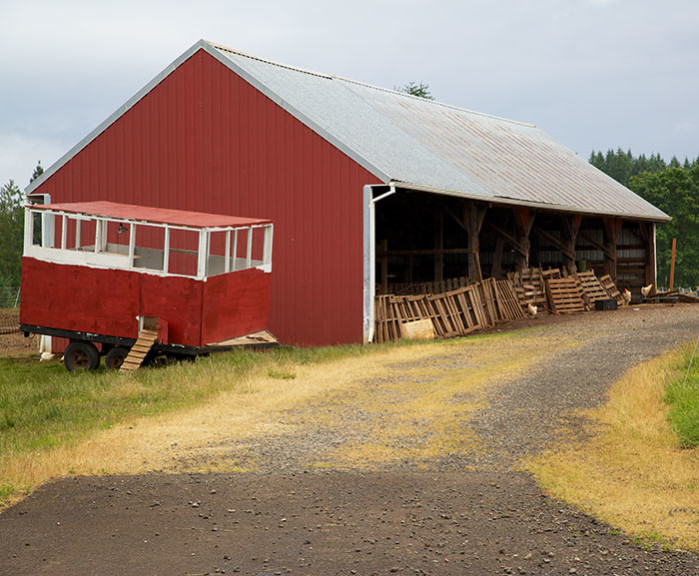
Most of the videos featured on Cooking Up a Story were produced, filmed, and edited by Rebecca Gerendasy. Fred Gerendasy contributed as a writer to many of the posts and occasionally as the interviewer. Visit Rebecca Gerendasy Clay – Art and Fred Gerendasy Photography to see their current work.

